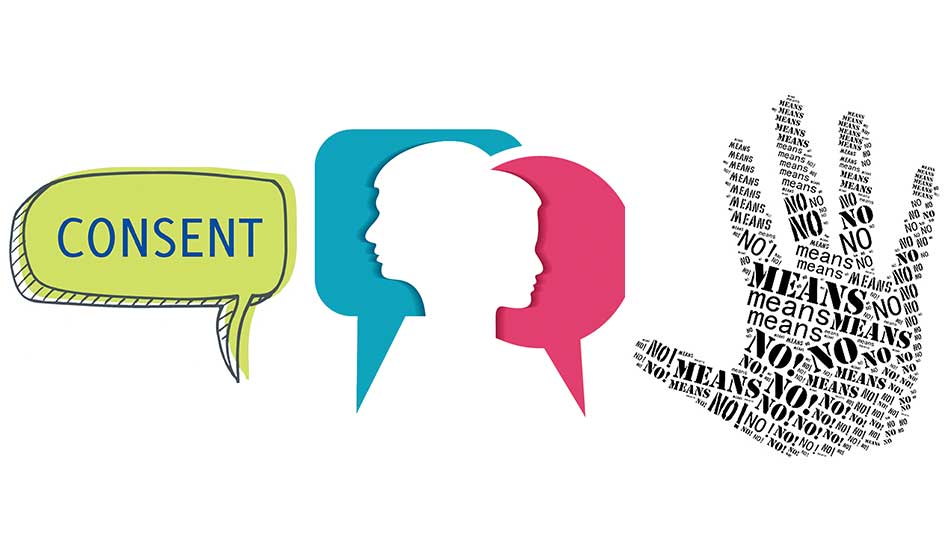Inside Scoop: Anant Ambani and Radhika Merchant’s Grand Pre-wedding Festivities
- 16 Mar - 22 Mar, 2024

In a society that has difficulty understanding personal choices, boundaries and privacy, it can be very hard to sit down and talk about sexuality, gender and to our horror, equality, without offending personal opinions. But what boggles me is how it is first-handedly acceptable to invade a couple’s privacy and throw around the dreaded “khush khabri kab aa rahi hai?” A country which is obsessed with the concept of ‘shame’ and associates it so largely with sexuality, it is funny how it does it, without ever using the word ‘sex’. Imagine sitting down with participants, both male and female, 20 year olds and 40 year olds, and talk about ‘it’ in a constructive and conversational environment. And this is what I did last week at Lincoln Corners Karachi as part of their program, which dedicated 16 days of activism against Gender Based Violence, in collaboration with the US Consulate. Moderating a session on consent, I sit my audience down (quite literally on the ground) in an attempt to make things informal but I can’t help but notice how the air in the room feels so heavy, how the mere three letter word makes everybody so uncomfortable. I didn’t need this to be communicated verbally, the body language says it all. On the surface, if you ask the simple question, “what is consent” people seem to have the right idea that sexual consent must come from both partners without coercion or as a favour but talking on into the subject, the discussion around it gets upsetting and that’s putting it mildly.
It wasn’t long till the association with religion is put forth, it happens so conveniently that people always seem to forget that not everyone shares the same religion, much less religious views and you cannot bind another person to your own beliefs. But owing to the lack of tolerance, and our understanding of diverse religious views is rather thin. Highlighting this isn’t exactly news. Here’s what was extremely triggering. Talking about sexual urges and consent, the solution that came from my audience on how to combat sexual assault and rape as a society was simple: tie them into matrimony; when an individual reaches legal age. The number of things wrong with this ‘solution’ is immeasurable. Sex is a biological reality that arises in young girls and boys during puberty. A child can hit puberty at between ages 8 to 14. And it is delusional to think that teenagers aren’t thinking or acting on their urges. The idea of promoting and teaching self-control is a thought that didn’t occur to anyone. For starters, the solution of eloping for sexual pleasures is promoting the (existing) school of thought that a marriage takes ground over bodily needs which needs to be satiated and nothing else. It was also insistently pushed into the discussion from the older crowd that a family structure and ‘compromising’ with the husband’s ‘wants’ can keep a marriage going. Or easier put, the basic theory of the brown marriage system where a woman is viewed as a sex object, often without considering her will, into producing children and exploited for physical and emotional labour, facts inherent in our marital values. Reflecting on the hypocrisies and revolting ideals of marriage on which our society is built, it gets challenging to find hope for a tolerant and accepting society. My question, “Are you going to get married just for sex?” after presenting the above POV was met with silence.
Let’s paint a picture. In Pakistan, mobility is a prevalent issue for women. Say a girl is with a male friend and needs him to drop her home safely but he asks for a sexual favour. This leaves a woman with two options: you say no to which there is a 50:50 chance of how well it is received or not or you say yes, just to get home safely. 10 out of 10 women in my research have said they have said yes out of fear or pressure in similar situations. “Is this consent?” I asked my audience and after a little shuffling, someone put forth that maybe a girl could compromise. I leave my readers with this fact, and to ponder on whether it is crucial to educate our children (all genders) about sexuality and the traumas that even the most minor of touches could inflict or keeping the tradition of maintaining silence on the subject and labelling it ‘shame’. •
COMMENTS